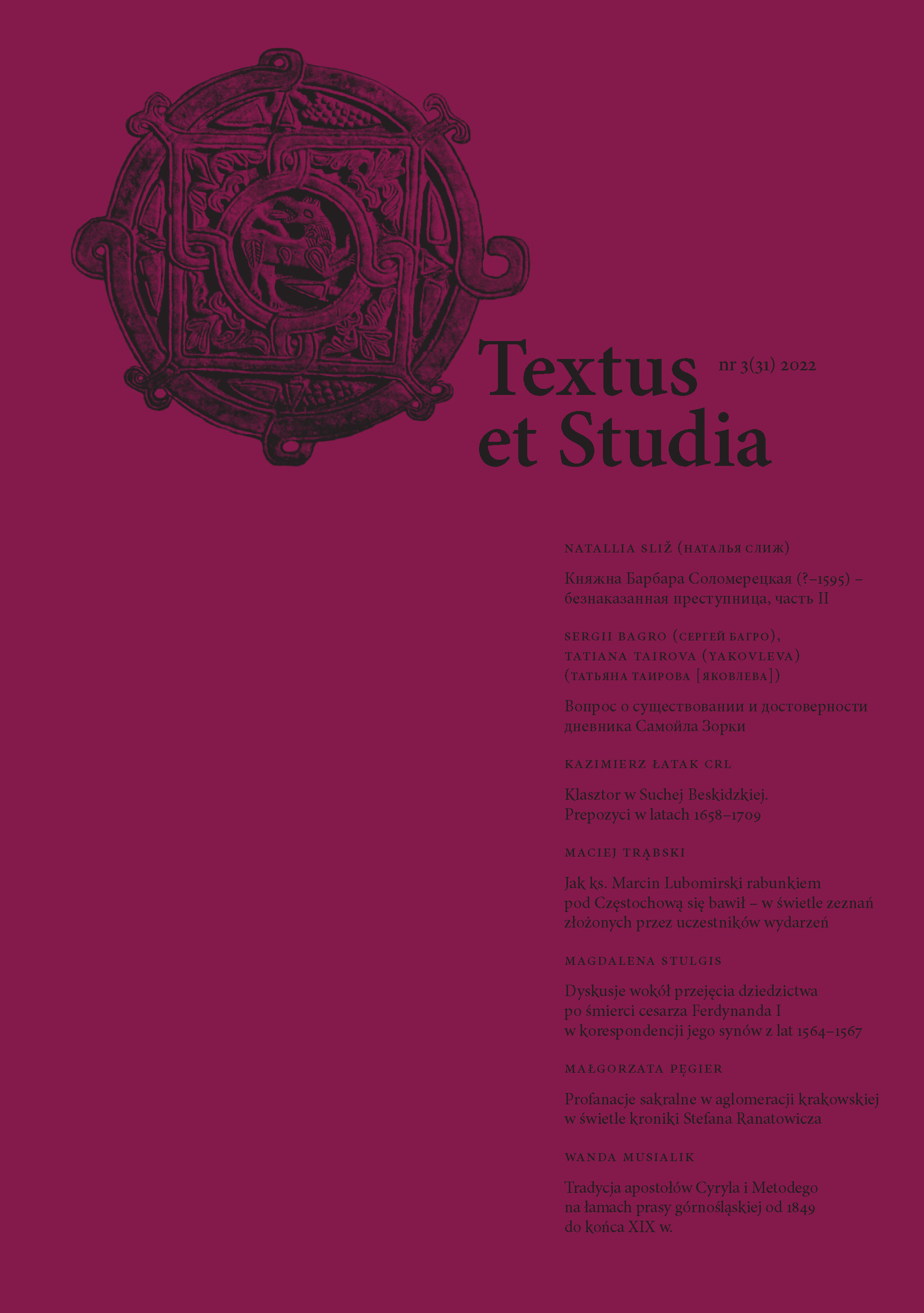Sacral profanations in the Krakow agglomeration on the example of Stefan Ranatowicz’s chronicle
DOI:
https://doi.org/10.15633/tes.08306Keywords:
profanations, Christianity, historiography, society, clergyAbstract
Although the problem of sacral profanation was present in the reality of Polish society and clergy in the seventeenth century, however, it was not a subject eagerly discussed by chroniclers and historiographers in general. Stefan Ranatowicz CRL (1617–1694), author of the chronicle of the monastery of Canons Regular of the Lateran Congregation in Krakow at the Corpus Christi Church in Kazimierz, he raised this issue many times in the pages of his book, but he did it not to cause a sensation or to attract the reader with an interesting subject, but only to show future generations what not to do. He claimed that the described deeds of the ancestors are to be a model for posterity, but also a warning to them, therefore, he did not shy away from reporting not very commendable behavior. It fit perfectly into the didactic intention of his historiography.
References
Ranatowicz S., Casimiriae civitatis, urbi Cracoviensi confrontatae, origo. In eaque ecclesiarum erectiones et religiosorum fundationes, nec non series, vitae, res gestae praepositorum Conventus Canonicorum Regularium Lateranensium S[ancti] Augustini ad Ecclesiam S[acratis] S[imi] Corporis Christi descriptae a Stephano Ranothowicz eiusdem conventus et Ecclesiae Canonico Regul[ari] professo, Biblioteka Jagiellońska, rkps., sygn. 3742.
Ranatowicz S., Jasna Pochodnia Życia Apostolskiego, Kraków 1660.
Downloads
Published
Issue
Section
License

This work is licensed under a Creative Commons Attribution 4.0 International License.
Authors who publish with this journal agree to the following terms:
- Authors retain the copyright and full publishing rights without restrictions, and grant the journal right of first publication with the work simultaneously licensed under a Creative Commons Attribution 4.0 International License that allows others to share the work with an acknowledgement of the work's authorship and initial publication in this journal.
- Authors are able to enter into separate, additional contractual arrangements for the non-exclusive distribution of the journal's published version of the work (e.g., post it to an institutional repository or publish it in a book), with an acknowledgement of its initial publication in this journal.
- Authors are permitted and encouraged to post their work online (e.g., in institutional repositories or on their website) prior to and during the submission process, as it can lead to productive exchanges, as well as earlier and greater citation of published work (See The Effect of Open Access).

